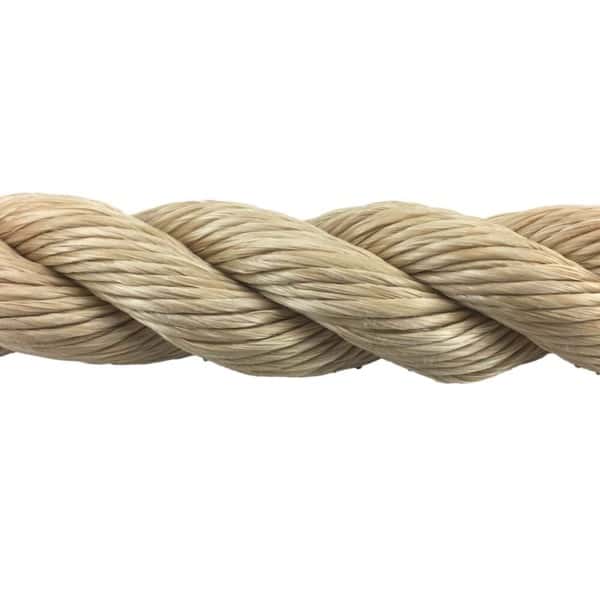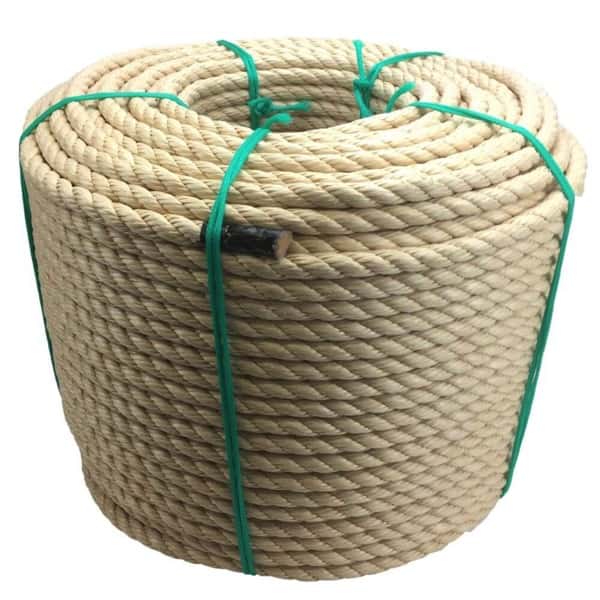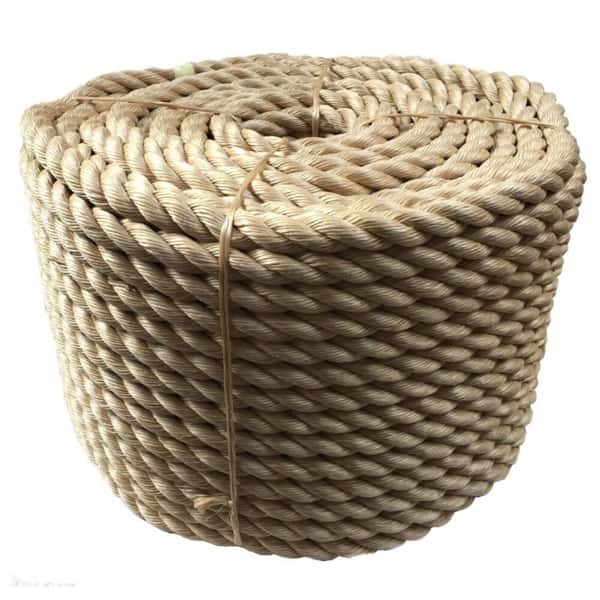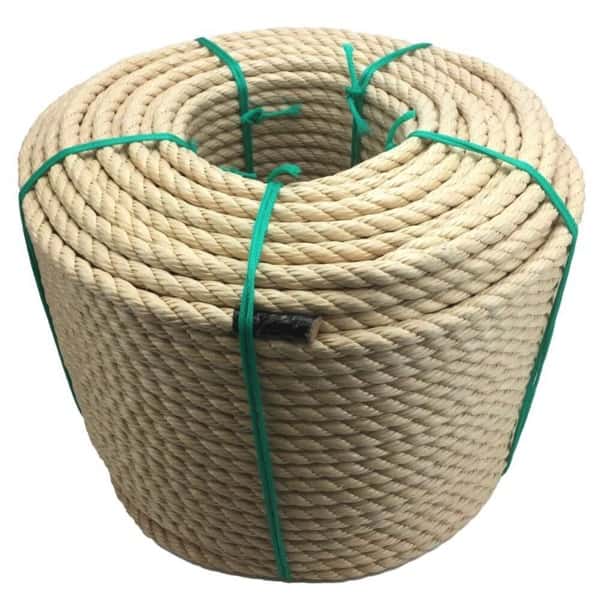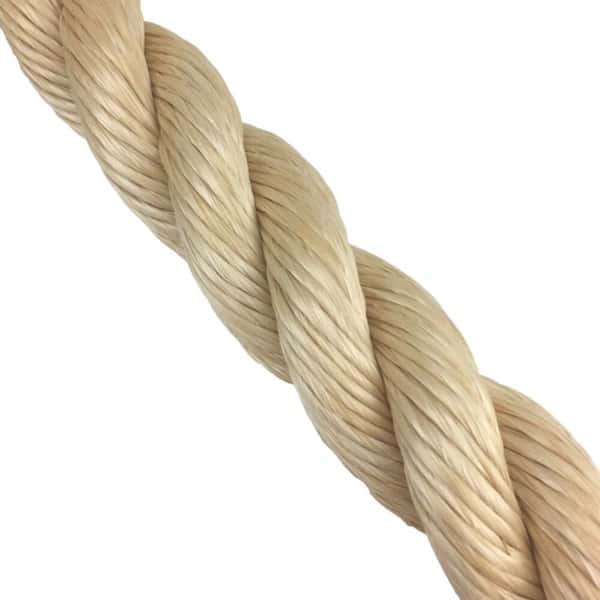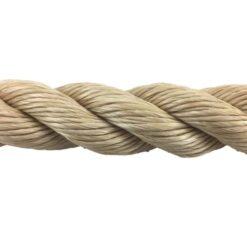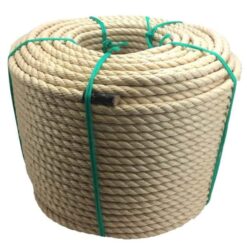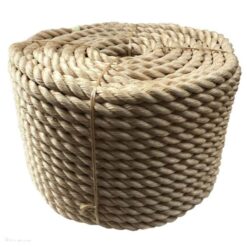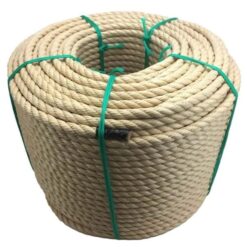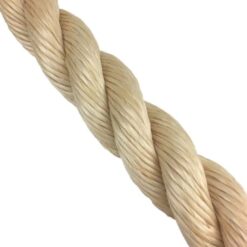60mm Synthetic Sisal Decking Rope (By The Metre)
- Rope Type – Synthetic Sisal Rope
- Colour – Buff
- Diameter – 60mm
- Order – By The Metre
- Both Ends Will Be Heat Sealed To Prevent Fraying
- Maximum Continuous Length – 220 Metres
Use the quantity box to indicate how many meters you need. For example, if you require 15 meters, input ’15’ as the quantity.
Should you require the cutting of your rope, please kindly indicate this by leaving a message during checkout. Please be aware that our rope cutting services are limited to the nearest meter, and there may be a fee associated with this service. If you require more precise cutting services, we invite you to contact us directly to discuss your specific needs.
£13.00
60mm Synthetic Sisal Decking Rope (By The Metre)
Our 60mm Synthetic Sisal Decking Rope is a durable, weather-resistant alternative to natural sisal, perfect for decking, fencing, and outdoor landscaping. Made from high-quality synthetic fibres, this rope mimics the look and rough texture of natural sisal while offering superior resistance to moisture, rot, and UV damage. It’s an excellent choice for those who want a traditional, rustic appearance without the maintenance requirements of natural fibre ropes.
Key Features
- Traditional sisal appearance – Looks like natural sisal but lasts longer.
- Weather and rot-resistant – Won’t degrade in wet conditions.
- Coarse texture for excellent grip – Ideal for handrails and barrier ropes.
- UV-resistant – Maintains its strength and colour over time.
- Low maintenance – No need for annual treatment or oiling.
- Cut to order – Sold by the metre to suit your project needs.
Why Choose Synthetic Sisal Decking Rope?
- No shrinkage or expansion – Unlike natural ropes, it stays consistent in size and shape.
- Hard-wearing and long-lasting – Perfect for high-traffic outdoor areas.
- Rustic aesthetic with modern durability – Ideal for traditional outdoor designs.
Ideal Uses
- Decking rope barriers
- Garden and landscaping projects
- Fencing and handrails
- Nautical and rustic-themed designs
Order by the Metre
Select the exact length you need, and we’ll cut it to order. Get the classic look of natural sisal with the durability of synthetic rope – order today!
Synthetic Rope and Its Properties
Synthetic rope is made from man-made fibers such as nylon, polyester, polypropylene, and polyethylene. These ropes are known for their high strength, durability, and resistance to various environmental factors. Unlike natural ropes, synthetic ropes do not absorb water, making them ideal for use in wet and outdoor environments. However, synthetic ropes have their own set of characteristics and considerations that you should be aware of.
Behavior in Wet Conditions
One of the key advantages of synthetic ropes over natural ones is their minimal water absorption. Synthetic ropes generally do not shrink or expand when exposed to moisture, making them highly reliable in marine, industrial, and outdoor applications. However, while they do not absorb water, some synthetic ropes may become slippery when wet, which can affect handling and knot-holding capabilities.
Effects of UV Exposure
Unlike natural ropes, synthetic ropes are resistant to rot and mildew, but they can be affected by prolonged exposure to UV rays. Over time, UV exposure can weaken the fibers, causing the rope to degrade and lose strength. To mitigate this, synthetic ropes can be treated with UV inhibitors or stored out of direct sunlight when not in use.
Resistance to Chemicals and Abrasion
Synthetic ropes are generally more resistant to chemicals and abrasion compared to natural ropes. For instance, nylon and polyester ropes are highly resistant to various oils, acids, and alkalis, making them suitable for harsh industrial environments. Additionally, these ropes have excellent abrasion resistance, which means they can withstand rough surfaces without significant wear.
Elongation and Stretch
Different types of synthetic ropes have varying degrees of elongation. For example, nylon rope is known for its elasticity, which allows it to absorb shock loads without breaking. This makes nylon rope ideal for dynamic applications such as climbing, towing, and mooring. On the other hand, polyester rope has low stretch, making it suitable for applications where maintaining tension is critical.
Care and Maintenance
To extend the lifespan of synthetic ropes, it’s important to follow proper care and maintenance practices. Regularly inspect the rope for signs of wear, abrasion, or UV damage. If the rope shows significant signs of wear, such as fraying or thinning, it should be replaced to ensure safety and performance.
Storage Considerations
When storing synthetic ropes, keep them in a cool, dry place, away from direct sunlight and chemicals. Coiling the rope properly and avoiding tight bends can also help prevent kinks and maintain the rope’s integrity.
Summary
Synthetic ropes offer numerous advantages over natural ropes, including resistance to water, rot, and chemicals. They are durable and strong, making them suitable for a wide range of applications. However, it’s important to be aware of their susceptibility to UV damage and to take appropriate measures to protect the rope from prolonged exposure. By properly maintaining and storing synthetic ropes, you can ensure their longevity and reliable performance in various conditions.
Well made and finished off lovely
Excellent quality - have used for linking decking posts and it looks great, high quality and chunky. We are very pleased and would definitely recommend.



